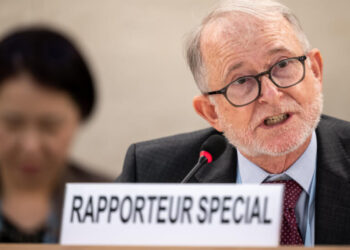Human Lives Human Rights: The Ukraine war in combination with the climate crisis, the impact of the COVID-19 pandemic and the unequal recovery, created a perfect storm of needs in developing countries like hunger crisis.
In a call for urgent action to address the root causes of rising hunger, ahead of World Food Day, the WFP said the current crisis was down to a “confluence of competing crises”, caused by climate shocks, conflict and economic instability.
World Food Programme (WFP) Executive Director David Muldrow Beasley said: “We are facing an unprecedented global food crisis and all signs suggest we have not yet seen the worst”.
In a call for urgent action to address the root causes of rising hunger, ahead of World Food Day, the agency said the current crisis was down to a “confluence of competing crises”, caused by climate shocks, conflict and economic instability.
Since the beginning of 2022, the number of hungry people around the world has shot up from 282 million to around 345 million and by mid-year, WFP had reached just over 111 million in need, aiming to reach a record 153 million by year’s end.
Some $24 billion are required to reach 153 million people in 2022. However, with the global economy reeling from the COVID-19Opens in new window pandemic, the gap between needs and funding is bigger than ever before.
“For the last three years hunger numbers have repeatedly hit new peaks. Let me be clear: things can and will get worse unless there is a large scale and coordinated effort to address the root causes of this crisis. We cannot have another year of record hunger”.
The emergency food relief agency underscored that it is currently “holding back famine” in five countries: Afghanistan, Ethiopia, Somalia, South Sudan and Yemen.
Conflict continues to drive the most vulnerable into catastrophic hunger, with communications disrupted, humanitarian access restricted and communities displaced.
The current war in Ukraine, for example, has disrupted global trade, pushing up transport costs and lead times while leaving farmers lacking access to enough fertilizers and other agricultural supplies they need, to produce enough food.
The world is facing a global hunger crisis of unprecedented proportions, and we are at a critical crossroads.
Either we rise to the challenge of meeting immediate needs while supporting programmes that build long-term resilience at scale, or we will face even greater humanitarian crises down the line.
We need new approaches and policies to commensurate with the challenges we face. It will take everyone’s efforts to fix a crisis that involves everyone.

















